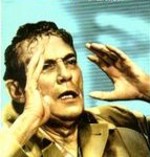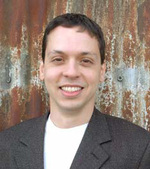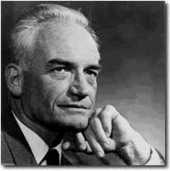Following is the lead essay from this week’s A-Clue.Com, the e-mail newsletter I have written since 1997.
Enjoy.
It’s important to stop every once in a while and give thanks.
We all have personal blessings to be thankful for. But without minimizing them I want to focus on more corporate blessings.
The 21st century marks a truly new phase in our history, the slow development of a "hive mind." The Internet is the first iteration of this idea. It is, by the standards of such things incredibly primitive. It’s slow, it doesn’t translate languages, it has many other barriers. But the work has begun and that’s a blessing.
I am especially thankful this year for the wisdom of the American people. Even when I violently disagreed with their electoral decisions, I was always, eventually, able to place them into an historical context that made them intelligible.
As you know, this is what I call the Open Source Thesis, although you might also call it the Internet Political Thesis. The recent election represents the first real triumph of that Thesis. Democrats organized themselves around the Internet as never before, and for the first time this kind of self-organization trumped the corporate and media politics that has dominated our culture for a generation.
Yes, everyone seeks personal validation in an election result. Conservatives say Republicans weren’t "really" conservative. Talking heads on TV will say that Democrats moved to the right. Some Democratic Party leaders will credit the money they raised, or the candidates they themselves recruited and endorsed.
But it’s the self-organizing work of the Internet itself that deserves more credit. Not the "Netroots" but the medium these activists used. Many idiots are now busy calling people like Chris Bowers of MyDD or Markos Moulitsas of DailyKos stars, but that’s like calling the bartender at the Algonquin the father of the Algonquin Roundtable. These people were mediums through which hundreds of thousands of others self-organized. They were enablers, nothing more. As Markos himself likes to insist.
But there were assumptions that grew out of anyone’s participation in this new political medium, even if they did it through conservative sites such as Redstate and its "Rightroots" project. These are assumptions inherent in the Internet itself. They are values – openness, connectivity, consensus – universally understood by active Internet users, universally embraced by these activists, but actually quite new in the political realm.
Compare Internet activism to the top-down activism of the Goldwater
movement, or the noblesse oblige inherent in the rise of either
Roosevelt to power. There is no "great man" here even though those who
have understood these values best, like Howard Dean, have been able to
achieve great things based on them.
Recently I learned of a project at my own alma mater that is driving this idea forward in other ways. It’s called Connexxions.
It’s a publishing platform, but it’s also a collaboration platform. It
lets professors build courses that encompass all kinds of files, not
just words and pictures. Just as important, it brings with it an
Internet-ready license scheme, the Creative Commons license, which
breaks down the cost of distributing these wonders to a mass audience.
My guess is there are other, similar projects going on at
universities around the world. Our ability to collaborate, and to
distribute, knowledge is increasing exponentially, in line with Moore’s
Law, thanks to this medium, and the fact that it is not yet reflected
in the price of higher education is down more to a need by the educated
to consider themselves elite than anything else.
Being highly educated is no longer going to be an elite activity in the
21st century. It is going to become a necessity. And I am thankful for
this as well.
The best example of what’s possible there lives in my own home. My
sainted bride of 29 years is the daughter of educators, and sometimes
feels bad that she’s not one herself. But she is one. She is constantly
involved in either learning or teaching. She is on her third computer
language, she has learned a variety of Web technologies, and she is
expert at creating requirements, the precursors to any complex program,
as well as in documenting her own work. Most of all she loves the
process, she loves learning new things and helping others learn them.
Could there be a better role model?
Change, and the need for change, continues to accelerate. I
know there are people who complain about this. I am not among them. I
am enormously thankful for it. It was to track change that I became a
computer journalist, and I have not been disappointed.
Happy Thanksgiving.













